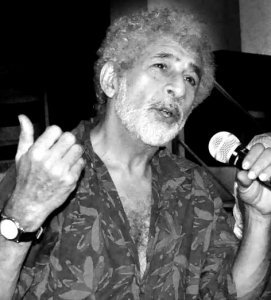 |
 |
Engagement
with the unusual
January 20, 2010  "Theater
is the only religion I believe in..." said Naseerudhin Shah. He was inaugurating
the second edition of the International Theatre Festival of Kerala 2009,
in Thrissur. "Theater
is the only religion I believe in..." said Naseerudhin Shah. He was inaugurating
the second edition of the International Theatre Festival of Kerala 2009,
in Thrissur.
"The stage for me is a sacred space..."Although popular as a film actor, his commitment is to theater. During the Face to Face, Shah recalled how he felt his mission in life even at the age of five. He narrated how his introduction to great actors nurtured his commitment to theater, and somewhere down the line, he made the choice to remain passionately attached to his first love, side-lining the glamour of the silver screen for theatre which is in fact, a fringe activity. Shah believes in the power of the word; believes an actor's job is that of a messenger. For him, a play should engage with the unusual, that it should leave a deep human impact. And as a director, Naseerudhin Shah aspires to give the best to his audience. Indeed, CANE MUTINY COURT MARTIAL, the inaugural play directed by Naseerudin Shah is one that made a demand on the audience. Performed on the bare stage, fifteen people in the cast, it is one of the finest court room dramas of the post World War II, produced by Motley Theatre, Mumbai. The theme
Mutiny takes
place in a US Marine ship. The control and charge of the vessel is taken
over by the executive naval officer, Stephen Mayk. Commander Queeg, the
Captain of the ship is overthrown. The play deals only with that section
of the novel that narrates the ordeal of Lt Stephen Mayk who is on trial
for mutiny. The play is set in the Second World War era and offers an insight
into the lives of those who fought the war. No matter what a war is fought
for, the forces indulging in it have to do away with their personal opinions
and concerns. They must follow orders to the valley of death. So while
examining the tragedy of war, the play probes the psyche of those in the
forefront. In just two acts, it lays bare the trauma that wars create for
human beings.
Unique presentation
Despite the uniform clothes, individual traits of each person is striking, in their body language, in the delivery of dialogue, and in facial expression. Pride in a career, the nature of the mission in war time, risks involved, stress and strain, strength and weakness of individuals, concern as well as disregard for other men come to the fore, making the incident complex for analysis. One of the witnesses is a writer whose jugglery of words creates confusion. Soon doctors take charge of the situation whose psychoanalyses in medical jargon confound everything. Whenever the defence counsel tries to unravel the truth from a layman's angle, the lawyer rises with his so called objections. We become aware of the rigidity of the legal system. Ironically, it is engaged in winning the case rather than imparting justice; the truth has many faces, medical nitty-gritty makes medical ethics difficult to practice. And human nature drives the elusive Truth beyond the grasp of Justice. The three judges announce a recess before the verdict. The play, thematically, ends here. The verdict is not given, not likely to be given. Perhaps the fiasco is an endless saga in the history of our times. The crowning
glory
Padma Jayaraj
is a freelance writer and a regular contributor to www.narthaki.com
|